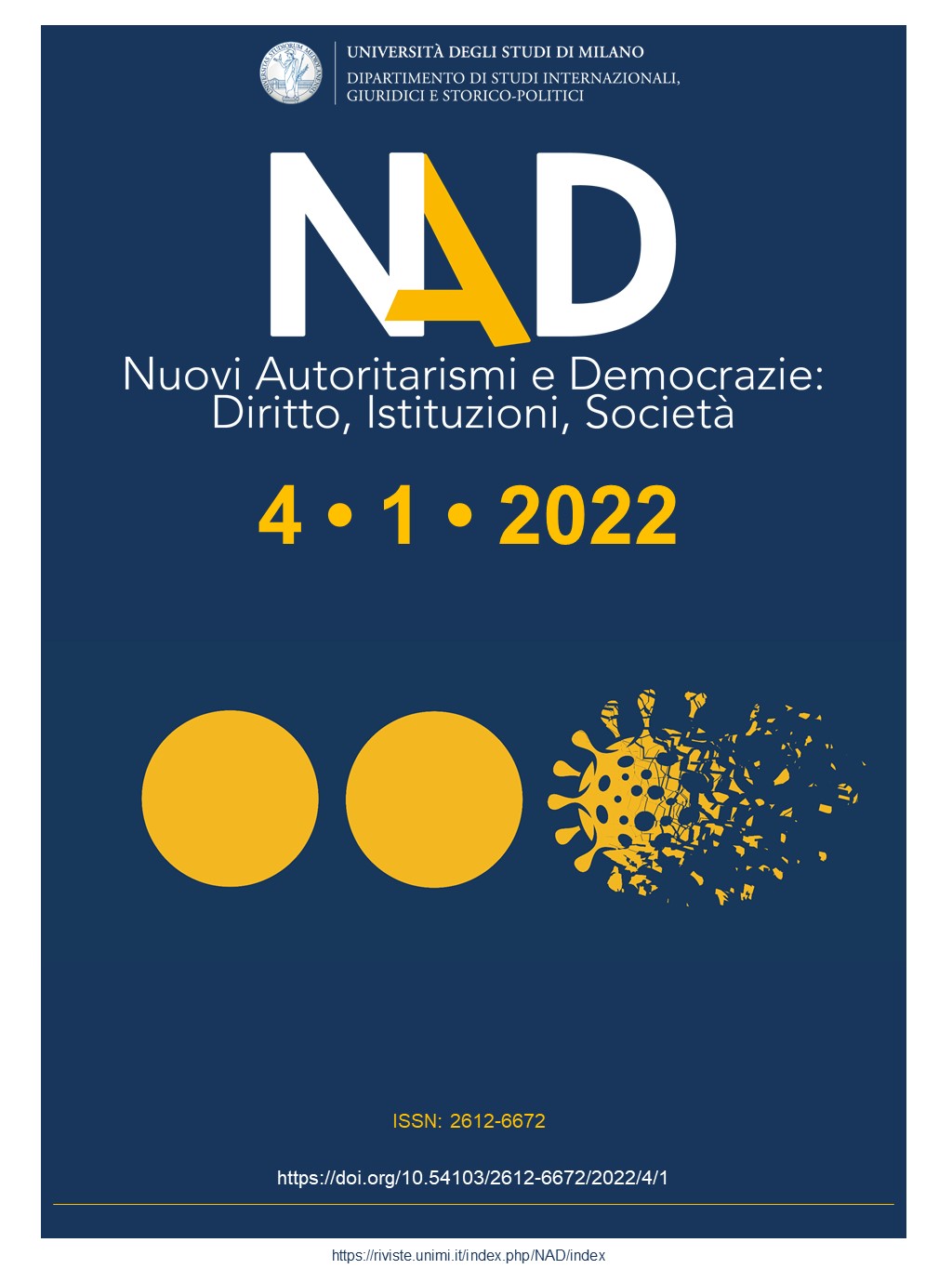Donne e Regimi. Differenti storie e tanti tratti comuni
DOI:
https://doi.org/10.54103/2612-6672/18475Keywords:
Women’s Right, Totalitarian Regimes, Constitutional Rights, Equality, Non-DiscriminationAbstract
The paper focuses on women’s condition in totalitarian regimes, in the light of the principles of the Italian Constitution. To this end, the paper will examine three main aspects. Firstly, the analysis will focus on the condition of women during the Nazi and Fascist totalitarian regimes. The proposed historical and legal reconstruction aims at identifying some key traits featuring the condition of women in the context of totalitarian regimes: the exclusion of women from the labour market and, more broadly, from the public sphere; the propaganda of an ideal-type of woman; the segregation of minority women (e.g. prostitutes, homosexuals, women with disabilities); the creation of masses of refugees fleeing regimes. Secondly, the paper will hinge on the Italian Constitution, that promoted a vision in clear rupture with the previous fascist regime with regard to women’s condition and to the strong protection granted to people fleeing regimes set forth under Article 10, paragraph 3 of the Italian Constitution. At the outset, the paper aims at reflecting on the current system of human rights protection in light of the 2021 takeover of the Taliban regime in Afghanistan, by way of underlying the specifics of the actual status of Afghan women
Downloads
Published
How to Cite
Issue
Section
License
Copyright (c) 2022 Marilisa D'Amico

This work is licensed under a Creative Commons Attribution-NonCommercial-NoDerivatives 4.0 International License.










